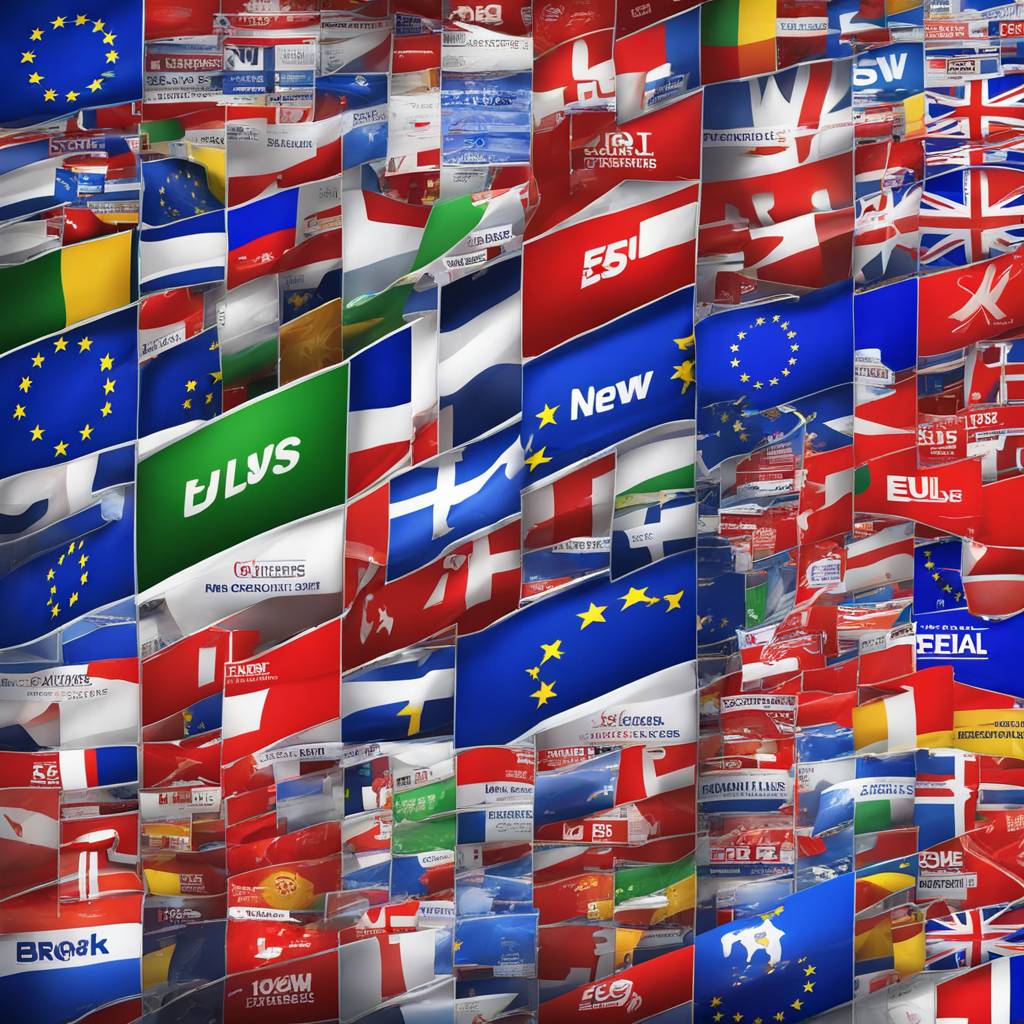The six founding nations of the European Union – Belgium, France, Germany, Italy, Luxembourg, and the Netherlands – are now seeing a rise in support for far-right and conservative parties, with immigration concerns playing a significant role in shaping the political landscape. A recent survey conducted by Euronews based on 26,000 interviews, including 10,000 from the Inner Six countries, revealed a shift towards radical right parties in these nations. Despite some centre-right parties still leading in Germany and Luxembourg, Italy’s right-wing Brothers of Italy is expected to see significant gains in the upcoming elections.
The support for far-right parties in the Inner Six countries is expected to lead to an increase in MEPs linked to centre-right or far-right parties, from 135 to 153 according to the survey. This shift represents a significant departure from the ideals of the European integration project envisioned by the founding fathers of the Union. The success of far-right leaders like Geert Wilders and Marine Le Pen has raised concerns among pro-EU supporters, who are now placing their hopes on a potential alliance between conservatives and centre-right parties to counter the radical right.
Immigration issues have been a major driving force behind the rise of far-right parties in these countries, with a majority of survey respondents in France, Germany, the Netherlands, Italy, and Belgium expressing discontent with the EU’s migration policies. Countries like the Netherlands and Germany view the fight against illegal migration as a top priority, indicating a growing rift between public opinion and the EU’s stance on immigration. Progressive factions within the Inner Six, such as the Green bloc and the Renew group, are expected to see a decline in representation, as scepticism towards incumbent parties rises.
The upcoming European Parliament elections in June 2024 are expected to be a significant event, with 720 Members of the European Parliament up for selection. The changing political landscape in the Inner Six has also given rise to the potential for new alliances and shifts in party affiliations. Non-affiliated parties, particularly populist ones like Germany’s Sahra Wagenknecht Alliance and Italy’s Five Star Movement, are expected to play a key role in shaping the future composition of the Parliament. The elections will be closely watched to see how the balance of power shifts within the Inner Six nations and the broader European Union.
Overall, the rise of far-right and conservative parties in the Inner Six countries is indicative of a broader trend towards nationalist and anti-immigrant sentiments in Europe. The upcoming elections will be crucial in determining the direction that the European Union takes in light of these shifts in public opinion. The success or failure of pro-EU forces in forming alliances and countering the rise of radical right parties will have far-reaching implications for the future of European integration and cooperation. As the founding nations of the EU grapple with these challenges, the rest of the bloc will be closely watching to see how events unfold in the Inner Six.













